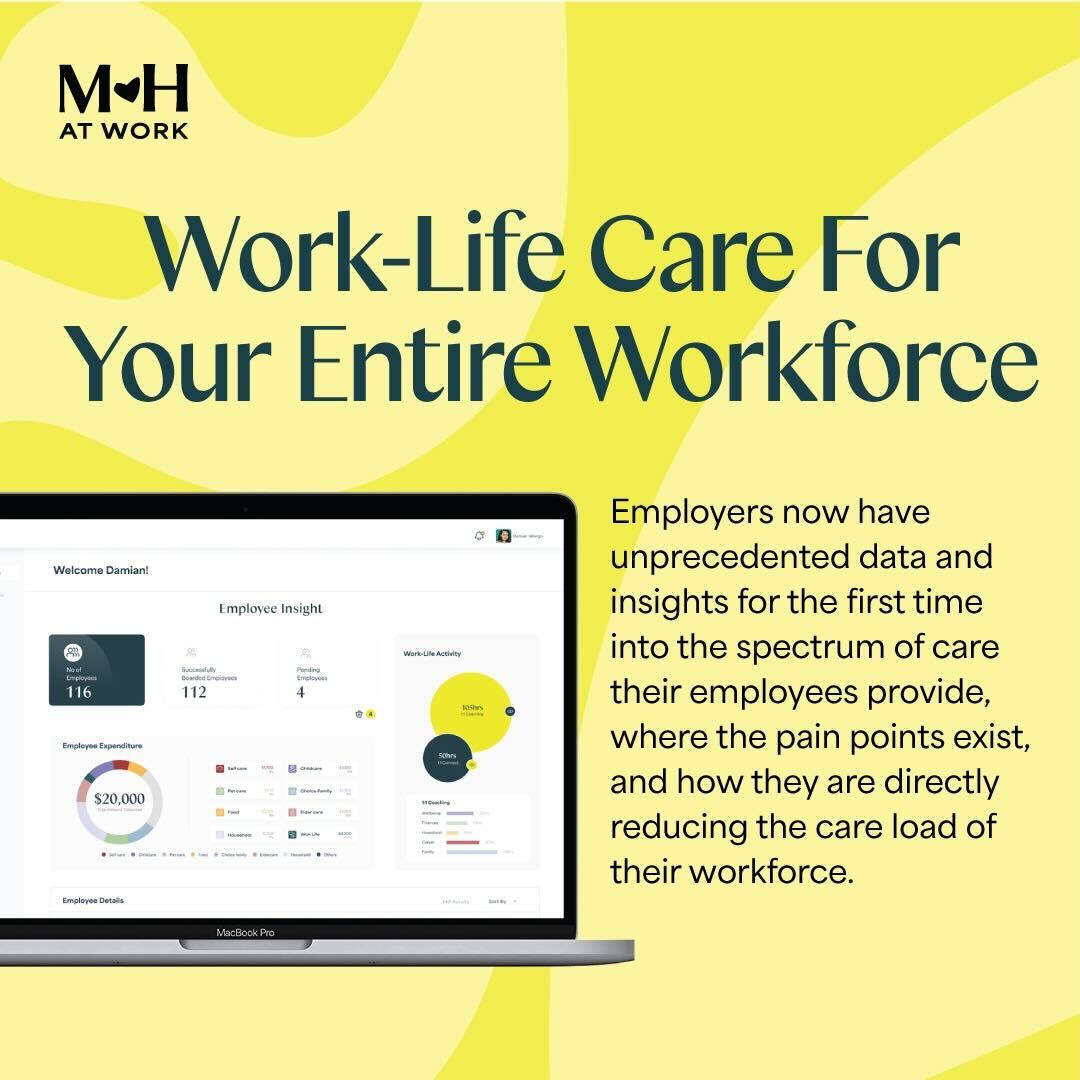Companies Need More Than Good Benefits to Support Parents Returning from Leave
Intuit leader Angie Robert shares how leaders can truly help caregivers with the challenging transition.
When Angie Robert returned to work after giving birth to her third child, she had not one, but two new managers.
As a mom of three, the co-lead of Intuit's Women’s Network, and an executive communications leader who has given plenty of talks on maternity benefits, Angie is familiar with the highs and lows of working parenthood. But even as a seasoned pro at returning from leave, at a company known for its generous parental benefits, she was discombobulated by the changes that had occurred in her absence.
“I was essentially starting from scratch,” she recalls. “You have to re-earn your stripes in addition to acclimating to going back to work, dealing with another child and navigating hormonal changes. It got me thinking: There’s not a system in place for helping women deal emotionally with going out on leave, whether it's before, during or after.”
That support is crucial not just for moms, but for companies, too. Because of gendered caregiving expectations, moms are still more likely than dads to interrupt their career to care for a child. (They are more likely to turn down a promotion, reduce their work hours, take significant time away from work, and quit working entirely.) That’s especially true when moms work for employers who don’t provide the support and flexibility they need to help them navigate this particularly challenging juncture in their careers. Conversely, parents who work for companies that offer generous paid leave and other parental benefits report higher rates of retention and engagement.
The good news is many companies have beefed up their parental leave benefits in recent years. Many have also added and expanded policies and perks to help parents when they return from leave, with phase-back programs that allow employees to slowly ramp back up to full-time work, luxurious lactation lounges for breast-pumping, and subsidies for child care.
“I think companies in the U.S. are doing a good job working towards good leave policies,” Angie said. “We're not Canada or Europe by any means, but I think we are going in the right direction and making progress.”
Angie Robert of Intuit
However, benefits alone aren’t enough, she points out. That’s particularly true if parents work in an environment where they’re expected to jump back into the office as if nothing happened.
We chatted with Angie to find out what company leaders can do—beyond offering parental benefits like paid leave that should be seen as tablestakes—to help employees navigate the tricky time after welcoming a new child. We love her suggestions, below:
The Fix: How Companies Can Ensure Caregivers Have a Smooth Return from Leave
Keep them in the loop. Before parents go on leave, give them the chance to opt in to updates with a manager or coworker. People should be able to take their leave undisturbed, of course, but many employees will want to know if their manager is changing or leaving the company, or if their job is going to drastically change. Document in advance the cadence of communication your employee would prefer while on leave, so they won’t be blindsided by major changes when they return.
Assign an advocate. When employees start a new job, they’re usually assigned a new hire buddy to shepherd them through their first few days and weeks. Similarly, parents need a leave buddy when they are out, who sits in their regular meetings, points out their accomplishments and mentions their name when a new opportunity arises. We all need champions and advocates, especially during this very pivotal time when we often feel like our career is at its most vulnerable.
Make sure meetings are convenient. Companies should have nursing rooms for breastfeeding employees, but employees also need time to breast-pump. Many quit breastfeeding because pumping conflicts with critical meetings, and they feel like they’re already struggling to get back to a level playing field with their peers. Ask employees if there are specific times of the day (e.g. during breast-pumping and child care drop-off and pick-up), when meetings are a no-go, and don’t schedule anything during those windows.
Schedule check-ins. Ask your employee how she is feeling and revisit any promotion discussions that took place before leave. Work together to determine how she can get back on the path to promotion, or see if she wants to recalibrate now. Let your employee take the lead.
Foster a culture that celebrates parents. Too many women are afraid to tell their boss about their pregnancy. Create a culture that gives employees the confidence that everything will be OK—that their job is secure and they will not be passed up for promotion. One way to do that: Make sure company leaders set a good example by taking their full leave and acknowledging when they are missing work to handle family obligations.
GET THE WORK-LIFE WALLET:
Stop wasting money. Redirect cash from ineffective EAP programs and directly empower your employees to meet their unique work-life needs. With Mother Honestly’s NEW work-life wallet, employees can access support for an array of work-life needs, including child care, elder care, pet care, self care, household chores and more. Employees link their debit card or bank account, and we screen and qualify work-life related expenses for reimbursement within seconds. Learn how your company can support caregivers with our Work-Life Wallet.
LOVE TO SEE IT
The division of labor at home became more equal during the pandemic, and in most cases, has stayed that way since, for moms who kept working. That was especially true when dads had access to remote work, according to new research.
HATE TO SEE IT
Hospitalizations for pediatric suicidal behavior increased by 163% over an 11-year period, according to an analysis of millions of hospital admissions published in the medical journal JAMA. And that could be an undercount, since the study didn’t include psychiatric hospitals, or reflect the years of the pandemic, The New York Times reports.






